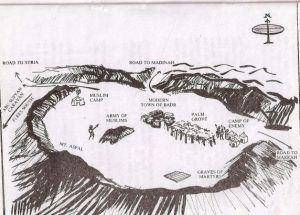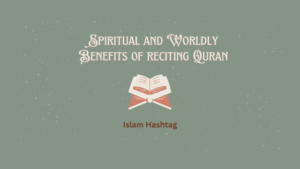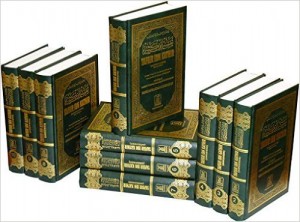Hurricanes in Islam, Types of Hurricanes and winds.
I read a wonderful article and learnt few things about Hurricanes as mentioned in Quran. I jotted down few lessons from it. Hope you find it useful too.
See more lessons from Quran
Hurricanes are awe-inspiring displays of nature’s power. The Quran acknowledges the might of Allah’s creation, emphasizing His control over natural forces. In Surah Al-Rad (13:13), it is stated, “And the thunder exalts [Allah] with praise of Him – and the angels [as well] from fear of Him…” This verse highlights the acknowledgment of natural phenomena as a means of praising and glorifying the Creator.
Types of Hurricanes in Islam

Hurricanes in Islam: The Quran mentions two distinct categories of storms that serve as reminders of Allah’s might.
Hurricane Storms that break everything

ام امنتم ان يعيدكم فيه تارة اخرى فيرسل عليكم قاصفا من الريح فيغرقكم بما كفرتم ثم لا تجدوا لكم علينا به تبيعا
Or are ye secure that he will not send you back therein another time and then send upon you a gale of wind (Kaasefan) and drown you for your having disbelieved, so that therein you will not find for yourselves against Us an avenger? (17:69)
The first category includes storms capable of breaking and destroying various elements. In Surah Al-Isra (17:69), the Quran warns of a gale of wind (Kaasefan) that can result in destruction, challenging the disbelief of those who disregard divine warnings. The word “Kaasefan” refers to the ability to break everything, especially wooden structures like trees, houses, and stores.
The word “Kaasefan” mean that break everything as shown below, especially of wood, like trees, wooden house and stores:
القَصْف: الكسر، وفي التهذيب: كسر القَناة ونحوها نِصفين. قَصَفَ الشيءَ يَقْصِفه قصْفاً: كسره. وقوله تعالى: أَو يُرسِلَ عليكم قاصفاً من الرِّيح؛ أَي ريحاً تَقْصِف الأَشياء تَكْسِرُها كما تُقْصَف العِيدان وغيرها.
This can cause moderate to considerable damage.Scientifically it falls under
EF2 = 179 – 218 Km/h = Considerable damage
EF3 = 219 – 266 Km/h = Sever Damage
b) Storms that can destroy everything, as in the next verse:
فلما راوه عارضا مستقبل اوديتهم قالوا هذا عارض ممطرنا بل هو ما استعجلتم به ريح فيها عذاب اليم (24) تدمر كل شيء بامر ربها فاصبحوا لا يرى الا مساكنهم كذلك نجزي القوم المجرمين (25)
Then, when they saw it as a dense cloud coming towards their valleys, they said: “This is a cloud bringing us rain!” Nay, but it is that (torment) which you were asking to be hastened — a wind wherein is a painful torment! (24)
Destroying everything by the Command of its Lord! So they became such that nothing could be seen except their dwellings! Thus do We recompense the people who are Mujrimûn (polytheists, disbelievers, sinners)! (46:24-25)
These can cause severe to extreme damage.Scientifically,
EF4 = 267 – 322 Km/h = Extreme Damage
EF5 >323 Km/h = Total Destruction
2. Fire Whirl (Fire Cyclone)

A second category of storms, are Fire whirls.
ايود احدكم ان تكون له جنة من نخيل واعناب تجري من تحتها الانهار له فيها من كل الثمرات واصابه الكبر وله ذرية ضعفاء فاصابها اعصار فيه نار فاحترقت كذلك يبين الله لكم الايات لعلكم تتفكرون
Would any of you like to have a garden of palm-trees and vines, with rivers flowing underneath it, with all kinds of fruit for him therein; and old age hath stricken him and he hath feeble offspring; and a fiery hurricane strikes it and it is (all) consumed by fire. Thus Allah maketh plain His revelations unto you, in order that ye may give thought. [2:266]
Though fire whirls are rare and may not have been a common occurrence in the Arabian Peninsula, the Quran references this phenomenon in Surah Al-Baqarah (2:266). The verse describes a garden consumed by a fiery hurricane, illustrating the impermanence of material possessions and the unpredictability of nature. This reference underscores Allah’s comprehensive knowledge and His ability to encompass all natural occurrences, no matter how rare or distant.
Types of Winds
Dust storms, prevalent in arid and semi-arid regions, are referred to as “yellow winds” in the Quran (Surah Ar-Rum, 30:51). These storms carry significant symbolism, as they are associated with a taste of humiliation as a consequence of disbelief. Additionally, in Surah Fussilat (41:16), a furious wind (Nahaseat) is sent as a test, a term that can also signify “dusty storms.” These references emphasize the significance of reflecting on the consequences of neglecting divine guidance and the potential for such storms to serve as reminders of our mortality and the importance of faith.
ولئن ارسلنا ريحا فراوه مصفرا لظلوا من بعده يكفرون
And if We sent a wind and they beheld it yellow, they verily would still continue in their disbelief. (30:51)
فارسلنا عليهم ريحا صرصرا في ايام نحسات لنذيقهم عذاب الخزي في الحياة الدنيا ولعذاب الاخرة اخزى وهم لا ينصرون
So We sent against them a furious Wind through days of disaster (Nahaseat), that We might give them a taste of a Penalty of humiliation in this Life; but the Penalty of the Hereafter will be more humiliating still: and they will find no help. (41:16)
Doldrums Winds (Ceased Winds):
The following verse explains the ceased winds that can’t move the ships and keep them locked over the sea surface:
ان يشا يسكن الريح فيظللن رواكد على ظهره ان في ذلك لايات لكل صبار شكور
If He wills, He causes the wind to cease, then they would become motionless on the back (of the sea). Verily, in this are signs for everyone patient and grateful. (42: 33)
Trade Winds (Favorable Winds)
The following verse explains the “favorable Winds” that help the ships to move everywhere in very nice trips which is equivalent to “Trade winds”
هو الذي يسيركم في البر والبحر حتى اذا كنتم في الفلك وجرين بهم بريح طيبة وفرحوا بها جاءتها ريح عاصف وجاءهم الموج من كل مكان وظنوا انهم احيط بهم دعوا الله مخلصين له الدين لئن انجيتنا من هذه لنكونن من الشاكرين
He it is Who enables you to travel through land and sea, till when you are in the ships and they sail with them with a favorable wind, and they are glad therein, then comes a stormy wind and the waves come to them from all sides, and they think that they are encircled therein, Then they invoke Allâh, making their Faith pure for Him Alone, (saying): “If You (Allâh) deliver us from this, we shall truly be of the grateful.” (10:22)
Prevailing Winds (Stormy Winds)
The following verse explains the blowing wind that is not related to rain or clouds but to “stormy days”, and this could explain the Prevailing Winds in the areas between 30 & 60 degrees:
مثل الذين كفروا بربهم اعمالهم كرماد اشتدت به الريح في يوم عاصف لا يقدرون مما كسبوا على شيء ذلك هو الضلال البعيد
The parable of those who disbelieve in their Lord is that their works are as ashes, on which the wind blows furiously on a stormy day, they shall not be able to get aught of what they have earned. That is the straying, far away (from the Right Path). (14: 18)
Polar Easterlies (Extremely Cold Winds)
The following verse explains the freezing winds that can destroy the plantations because of its low degree which is an exact description of the “Polar winds”:
مثل ما ينفقون في هذه الحياة الدنيا كمثل ريح فيها صر اصابت حرث قوم ظلموا انفسهم فاهلكته وما ظلمهم الله ولكن انفسهم يظلمون
The likeness of what they spend in this world is the likeness of a wind which is extremely cold; it struck the harvest of a people who did wrong against themselves and destroyed it, (i.e. the good deed of a person is only accepted if he is a monotheist and believes in all the Prophets of Allâh, including Christ A.S. and Muhammad SAW). Allâh wronged them not, but they wronged themselves. (117)
Stone storm in Quran

انا ارسلنا عليهم حاصبا الا ال لوط نجيناهم بسحر
Lo! We sent a storm of stones upon them (all) save the family of Lot, whom We rescued in the last watch of the night (54:34)
And in the next verse, it explains how storm of stones were sent on infidel people as sever torment, which reminds us with what happen to Pompeii in Italy in 70’s AD:
فكلا اخذنا بذنبه فمنهم من ارسلنا عليه حاصبا ومنهم من اخذته الصيحة ومنهم من خسفنا به الارض ومنهم من اغرقنا وما كان الله ليظلمهم ولكن كانوا انفسهم يظلمون
Each one of them We seized for his crime: of them, against some We sent a violent storm (with showers of stones); some were caught by a (mighty) Blast; some We caused the earth to swallow up; and some We drowned (in the waters): it was not Allah Who injured (or oppressed) them: they injured (and oppressed) their own souls. (29:40)
Hurricanes in Islam, Lesson:
The Prophet Muhammad (peace be upon him) himself sought protection from various natural calamities through specific supplications. The Quran also encourages believers to seek refuge in Allah from the evil of created things (Quran 113:1-5), demonstrating the importance of turning to Him during times of distress.
Hurricanes test human patience and resilience, challenging us to remain steadfast in faith. The Quran assures believers that with hardship comes ease (Quran 94:5), highlighting the cyclical nature of life’s challenges. Drawing inspiration from the lives of the prophets, believers can find strength in facing adversity with patience and trust in Allah’s wisdom.
Discover more from Islam Hashtag
Subscribe to get the latest posts sent to your email.




